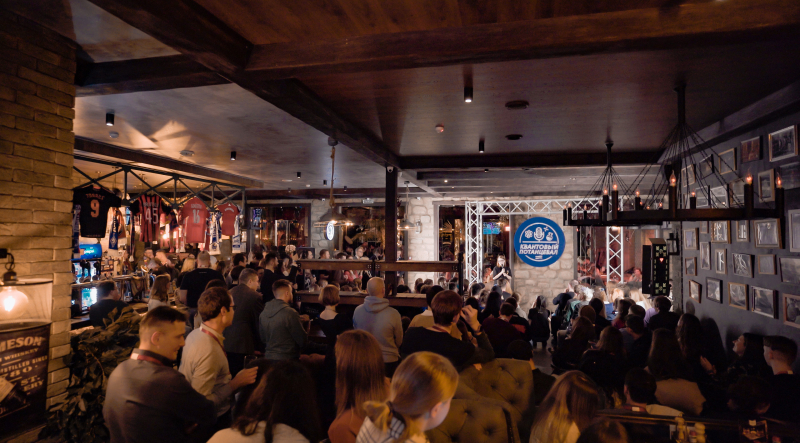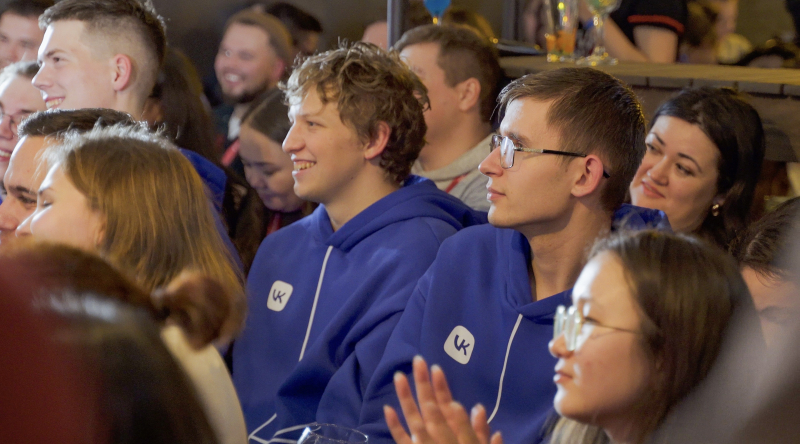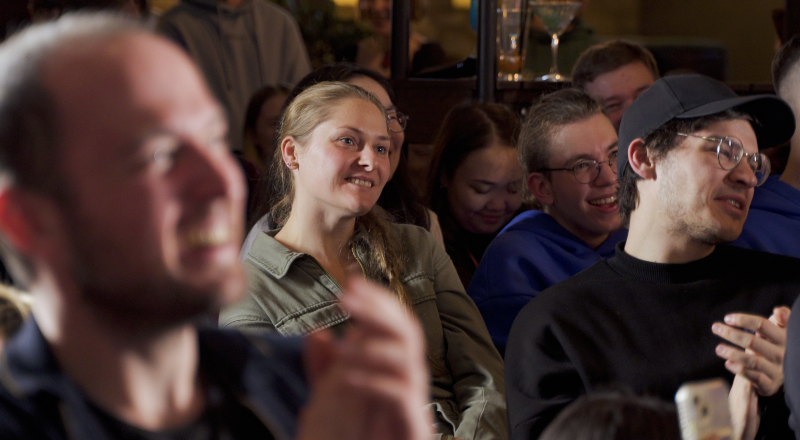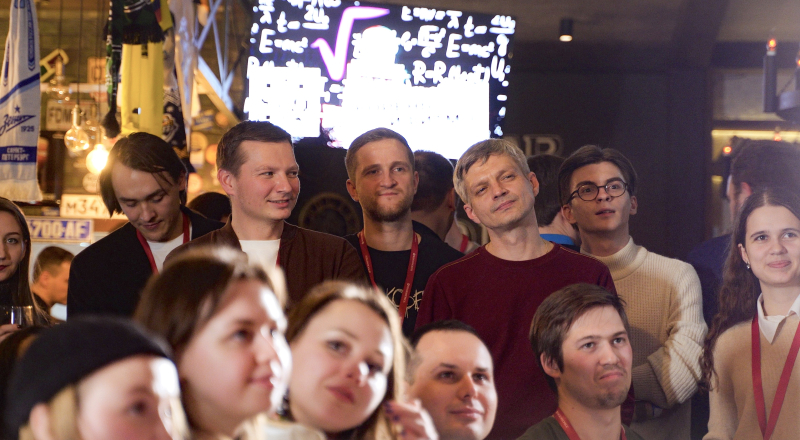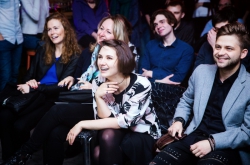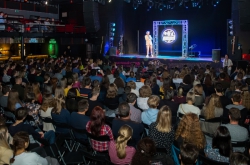When researchers are asked to deliver presentations, they often leave no room for jokes but that’s not what Quantum Potential is about. Over four years, the science show has had tens of experts in physics, robotics, and IT, making science easy-to-understand and fun on its stage.
The first seven shows were met in St. Petersburg with great acclaim, with this year’s one going beyond its hometown for the first time. On December 2, Quantum Potential, held as part of the congress’ evening program, took place at the Harry Potter bar in Sochi. The venue had a full house well before the show started. As noted by the organizers, invitations were out thirty minutes after the start of the registration.
“Our team has always wanted to take the show outside Its traditional venues, and what can be a better fit for science stand-up than the Congress of Young Scientists – an event that brings together top-notch researchers?” asks Aleksandr Gostev, the head of ITMO’s Special Projects Office. “To be honest, we expected there to be some hype. I think that such events give space for the most productive casual interactions, and I’m happy to see that it’s true and our show was a great success.”
As ever, this year’s show brought together scientists, comedians, and stand-up comics to talk about science, technology, and aspiring researchers. The participants were free to choose a topic and consult with the show’s organizers when putting their performances together. Among the guests were big-name stand-up comedians Seva Lovkachev and Nidal Abu-Ghazaleh, and the show’s stars became three scientists and entrepreneurs from St. Petersburg and Moscow.
Vacations for theoretical physicists and everyday life of aerospace engineers
Anton Kozubov, a senior researcher at ITMO’s Laboratory of Quantum Processes and Measurements, gave a talk about theoretical physicists’ dream destinations and explained why it takes four scientists to travel from point A to point B by a German train.
“Whenever I’m teaching complex concepts, I always try to use analogies, which are no trouble to come up with if you have a vivid imagination or profound expertise. As a lecturer and a scientist, I have to stay current in my field, and if my colleagues have some tried-and-tested analogies to offer, I find no shame in borrowing them to explain extraordinary phenomena. However, that’s a no-go in comedy. Here, you have to have loads of stories under your belt, which I have no problem with since my job keeps my curiosity satisfied and my brain – sharp,” says Anton Kozubov.
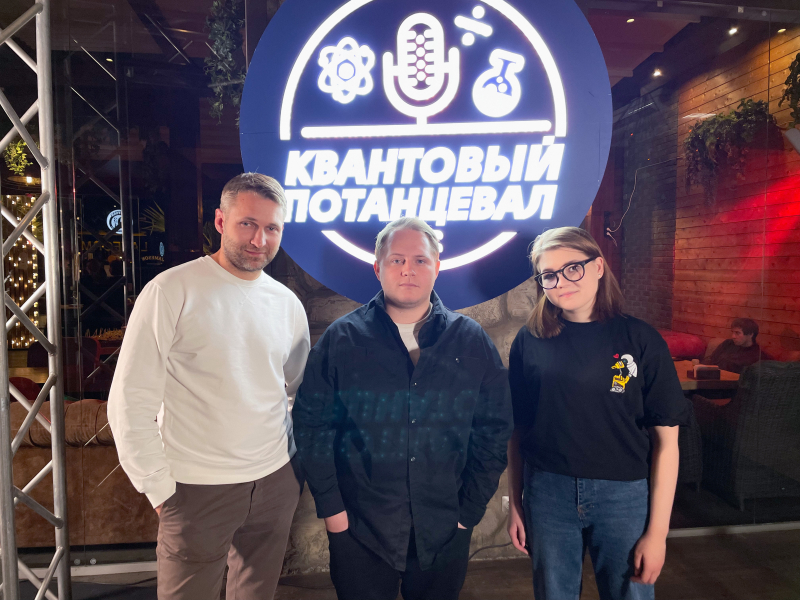
Andrey Anfinogenov, Anton Kozubov, and Varvara Sheremet. Photo by Zayana Takaeva / ITMO.NEWS
On the other hand, Andrey Anfinogenov, the dean of ITMO’s Faculty of Technological Management and Innovations, shared the story of his first business – predicting Kinder Surprise toys – which he opened when he was 12, and speculated on the ways to connect science and industry, especially when the gap between the fields seems impossible to bridge. According to Andrey, stand-up comedy is a cool and, most importantly, multi-purpose format that works well in both clubs and classrooms.
“Science stand-up shows are all about fresh perspectives and a friendly atmosphere, which is especially fun when it’s part of such a major event as the Congress of Young Scientists. There must be events that are less formal yet at the same time highly insightful. This isn’t my first experience on stage. I’ve been hosting events my whole life. I switched from corporate work to academia so my lectures at ITMO somehow resemble stand-up specials. My life is full of fun moments, and it fills me with confidence when I need to speak publicly,” notes Andrey Anfinogenov.
Meanwhile, Varvara Sheremet, a fifth-year student in rocket and space technology at the Bauman Moscow State Technical University, shared her path from thorns to the actual stars when she wanted to study space but the nearest class she could take was 50 kilometers away from her hometown.
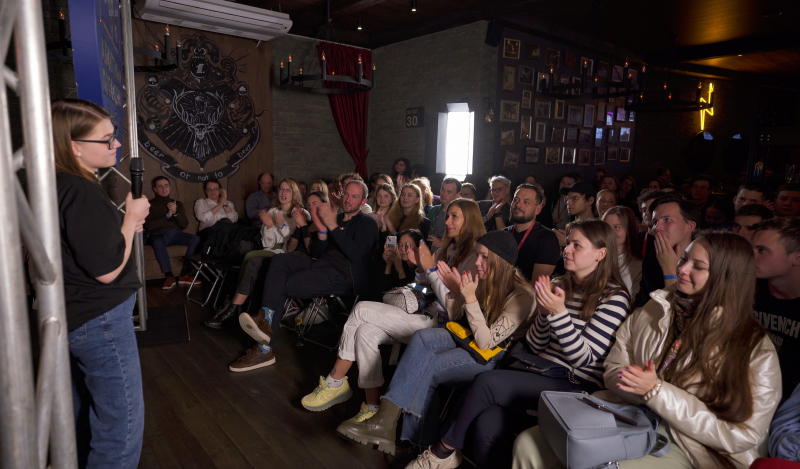
Quantum Potential in Sochi. Credit: ITMO University
“I’ve been learning about space for as long as I can remember. I popularize space science and design rockets and satellites. Though the field may seem quite serious, it doesn’t lack in humor. We have our laugh-out-loud moments, for example, when someone’s experiencing epic fails with different systems. After all, if you don’t laugh at yourself, no one will,” says Varvara Sheremet.
This year, Quantum Potential attracted more than 250 spectators, including students, lecturers, and experts in IT, genetics, physics, chemistry, economics, anthropology, neurobiology, and many other fields, from various parts of Russia.
ITMO.NEWS talked to the show's guests to learn more about the perks of bringing comedy and science together and their tips on how to make science simple.
Roman Starchenko
The deputy head of the Institute of Anthropology and Ethnography of the Russian Academy of Sciences
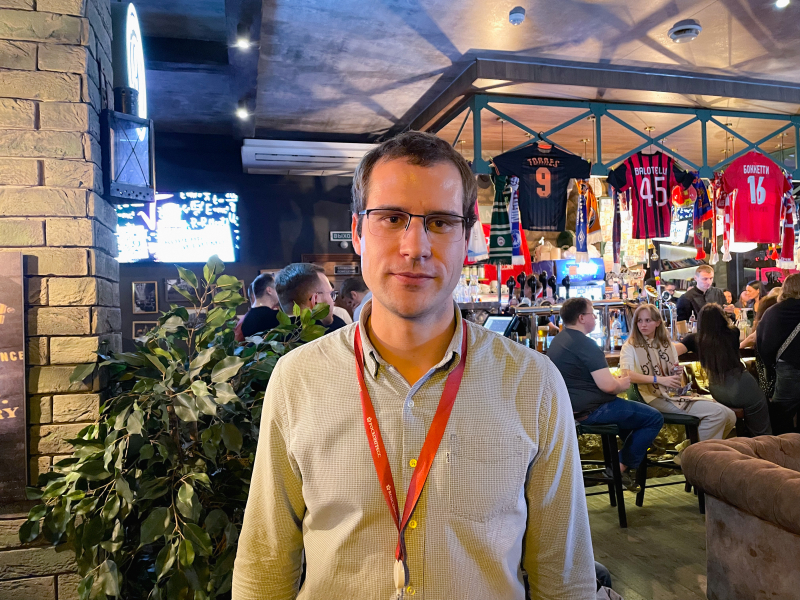
Roman Starchenko. Photo by Zayana Takaeva / ITMO.NEWS
I’m an ethnologist and anthropologist who, among other things, studies our ancestors and recreates the appearance of early humans from bone remains. The show interested me from a professional point of view. To promote our research, we usually make use of various methods, for instance, popsci papers, conferences, and large-scale events. Science popularization is crucial, especially since most people think of researchers as a private elite community and have no clue about our studies’ impact on everyday life. A science stand-up show is another great way to promote our advances with humor. I enjoyed the show and even consider using this format for conferences at our institute.
Darya Khmelevskaya
A second-year PhD student at ITMO’s Faculty of Physics and an employee at the Laboratory of Hybrid Nanophotonics and Optoelectronics
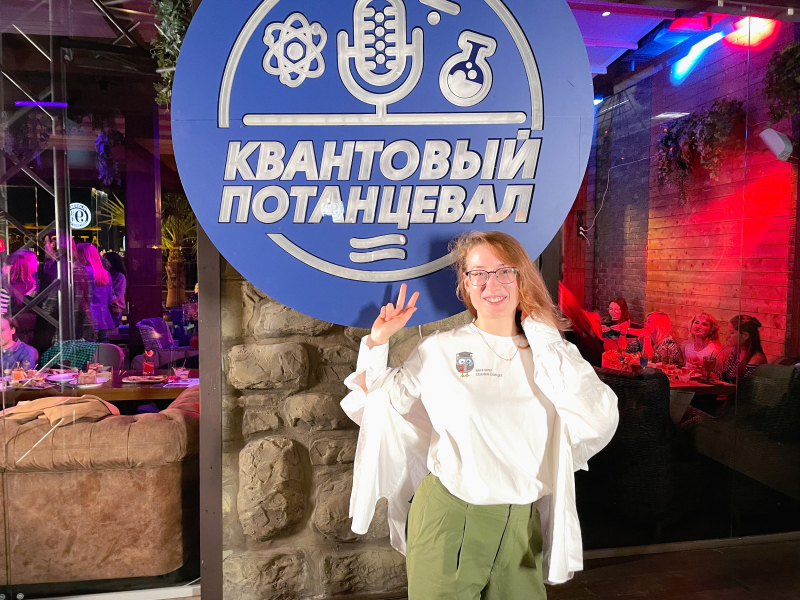
Darya Khmelevskaya. Photo by Zayana Takaeva / ITMO.NEWS
This is my third time at Quantum Potential. I love that the show unites researchers who can talk about what they do in a fun, engaging way, as well as lots of other like-minded people. It’s a quintessence of science, humor, a pleasant environment, and familiar faces. This is an excellent way to promote science, and I hope to give comedy a try, too, in a year or two. For the time being, I take part in open days at the laboratory and use analogies to illustrate complex concepts, which works exceptionally well. For instance, my colleague Mikhail Masharin once explained exciton polaritons using parties as an example. Imagine that these polaritons are a group of young people at a club. If there’s no music, nothing happens, yet as soon as you turn some music on, that is, add a photon, there will be so many people that they all won’t fit into one space and will bump into each other.
Artem Bogdanov
An associate professor at the Department of Materials Science at Volgograd State Technical University
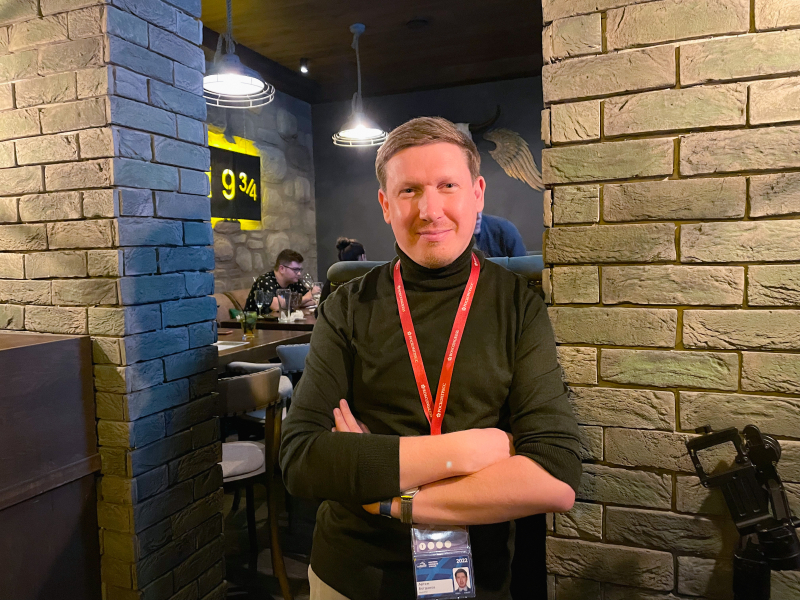
Artem Bogdanov. Photo by Zayana Takaeva / ITMO.NEWS
In my research, I’m looking into methods for creating coatings with wide-ranging properties, for example, heat-resistant materials suitable for space. I use common examples for challenging topics, such as frying pans. Imagine that you’re cooking potatoes in a cast-iron skillet and you’ve noticed that after a few meals your skillet started to blacken. What can you do about it? One of the options you have is to purchase an expensive pan coated with multiple layers and have fried potatoes to your heart’s content. No matter what background or mindset you have, there are popsci events for everyone. Quantum Potential is a good one, because it offers a unique format that helps people step into the scientific community and make useful contacts.
